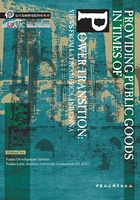
Introduction
In recent years,“people-to-people exchanges” and “global public goods” have literally become buzzwords and been introduced into international studies.The former is used more in societal-cultural aspects while the latter is more frequently employed in global trade,finance as well as environmental concerns.Thus,they have drawn increasing interests in academic research.
Is there some potential interface between the aforementioned two seemingly unconnected yet equally crucial terms in addressing major concerns of the world today? This paper attempts to examine it by taking a social constructivist approach and argues that if individuals of the entire communities finally enjoy the well-being of global public goods,positive outcomes of intersubjective performances like people-to-people exchanges can contribute to preserving and promoting global public goods.Moreover,the people-to-people exchanges may even function as providers of global public goods on the ground that shared knowledge,norms and identities produced collectively by people as results of their exchanges are constitutive components of the global pubic goods themselves.
The paper falls into four parts.It first takes look at a social constructivist perspective to global public goods and people-to-people exchanges.Then it understands conceptually the term of global public goods and its implications.Thirdly it explains why people-to-people exchanges can contribute to,besides government-to-government effo-rts,promoting global public goods.The final part is devoted to the discussion on how global public goods and international development cooperation can be preserved and promoted through people-to-people ties by taking the relationship between China and the Americas into account.